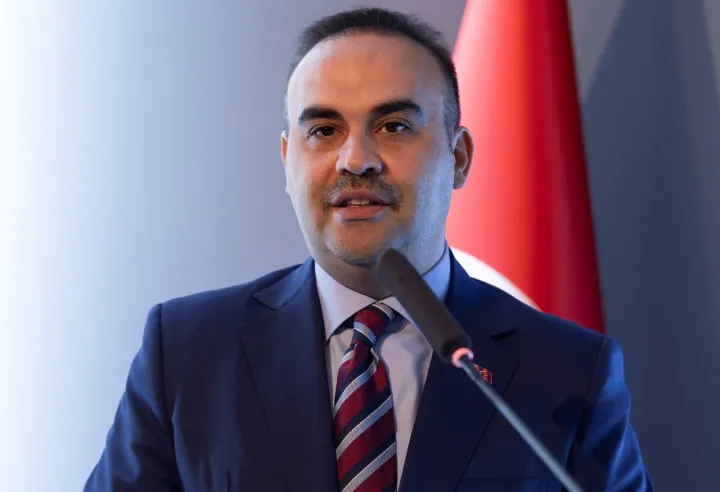By Hamza Kyeyune
Like day follows night, Africa is battling the challenges of having a young population alongside increased life expectancy, thanks to advancements in science, nutrition, and public health.
One of the primary challenges is social security, including regular subsistence in the form of pensions for an ageing population still unused to the money adage, "Save me today, and I will save you tomorrow."
Experts note with concern that this isn't a pressing issue for many on the continent, given more critical priorities such as health, education, agricultural development and security, among others.
According to Help Age International, people over 60 and 80 represent the fastest-growing population group on the African continent.
The number of older adults increased by 50% between 2000 and 2015. The United Nations estimates that by 2050, there will be almost 2 billion people over 60 worldwide, close to 80% of whom will live in developing countries.
Gaping holes to plug
Africa is currently positioned in a demographically dynamic stage in its history, with its elderly population proliferating. Yet, many countries don't have efficient publicly-managed pension and social security systems.
Less than 10% of the elderly population in sub-Saharan Africa has access to a contributory pension, according to a study titled "International Patterns of Pension Provision." .
Data presented by the delegates at the 4th annual conference of the African Pension Supervisors Association (APSA) in the Ugandan capital Kampala last November reflected the gravity of the problem.
Delegates to the conference, themed "Sustainable Pension Inclusion in Africa", noted that 600 million of Africa's 778 million working-age population are excluded from formal pension and social protection. This means they face the grim prospect of living in poverty for over 20 years after being too old to work.
Uganda as a case study
Uganda, one of the 15 members of the APSA, has three million registered savers, which pales in comparison to a working population of over twenty million people.
Martin Nsubuga, chief executive officer of the Uganda Retirement Benefits Regulatory Authority (URBRA), lists the key factors that perpetuate the exclusion of Ugandans from retirement savings as high unemployment and poverty rates, digital inequality, irregular remittance of contributions by non-compliant employers, and inadequate savings.
Most Ugandans lack a decent corpus covering post-retirement requirements like healthcare, decent shelter, and reliable cash flow.
People excluded from pension schemes rely on informal arrangements and family resources for survival. The problem is that, as in other regions of the world where dependency ratios are falling, social pressures will make it harder for elderly Africans to rely on family and informal arrangements for sustainable survival.
Experts recommend a review of existing legal frameworks to bring informal-sector workers under their purview along with governmental support through fiscal initiatives like tax exemptions and matching contributions to mobilise savings for retirement.
Ugandan MP and economist Muwanga Muhammad Kivumbi, who represents Butambala County, believes that African nations that already have functional social security systems in place can discuss widening the ambit of pensions to include those that are not covered.
"But for countries like Uganda and many others where coverage is just 10%, the discussion should be different," he tells TRT Afrika.
"You cannot talk about extending coverage of something that doesn't exist. We need to acknowledge that our pension system is missing, highlight the magnitude of the dilemma we are faced with, and aggressively come out with homegrown solutions."
Need to change mindset
Lydia Mirembe, manager of corporate and public affairs at the URBRA, says the most challenging part is transitioning into a comfortable retirement with financial independence, which largely depends on individual decision-making.
"The government enabled a legal and regulatory framework by establishing the URBRA. The onus is now on individuals to reflect upon their future, take advantage of the system and prepare for retirement," she explains.
"This does not mean I am relieving the employers of responsibility. The existing legal framework compels them to remit regular contributions for their employees by the law."
Asiimwe Aine, a teacher employed by the government, is among the millions who fear their meagre salaries will prevent them from saving reasonably for life after retirement.
"When you transition from saving to withdrawing, there is zero chance that the retirement portfolio will last ten years," she tells TRT Afrika.
The predicted life expectancy post-retirement is between 20 and 30 years, with medical technology and an improved lifestyle contributing to longer lifespans. Asiimwe sees it as only half the battle won.
"The government should, first of all, strengthen the National Health Insurance Scheme because it would help lower the out-of-pocket expenditure on medical care," she says.
➤Click here to follow our WhatsApp channel for more stories.
























